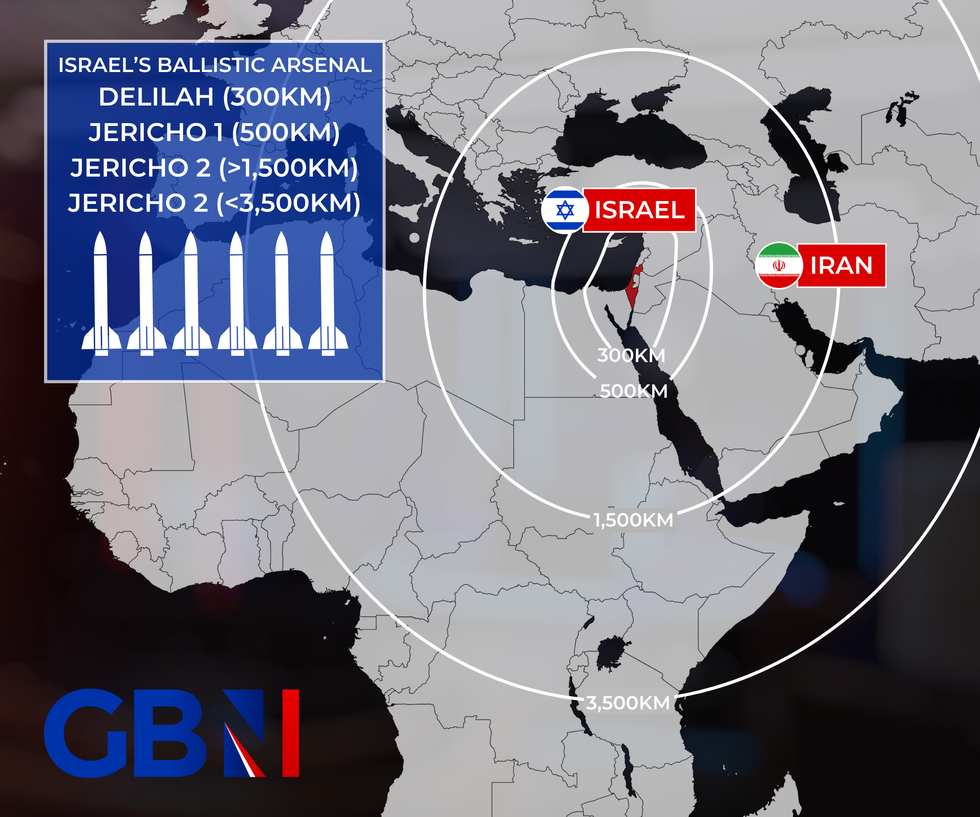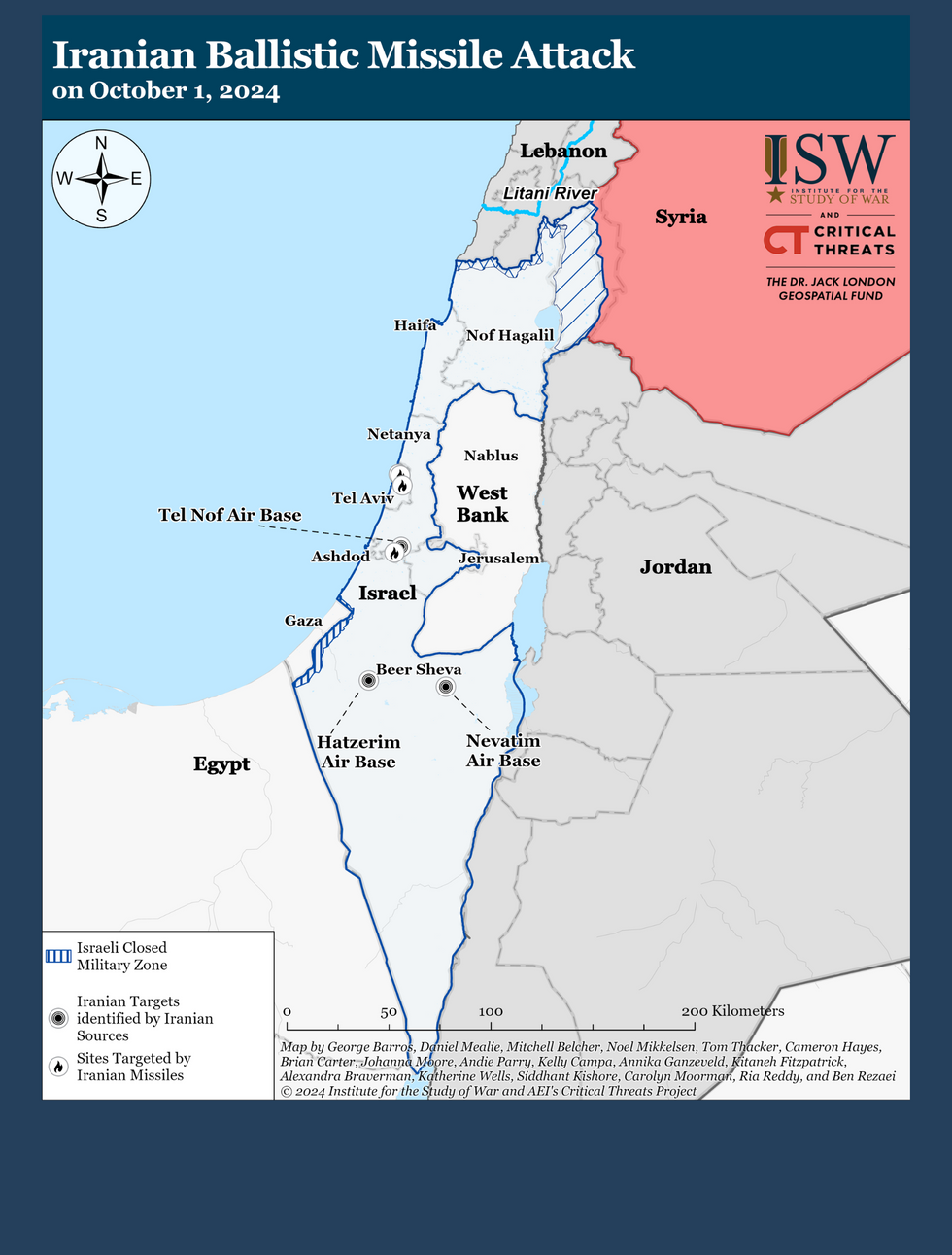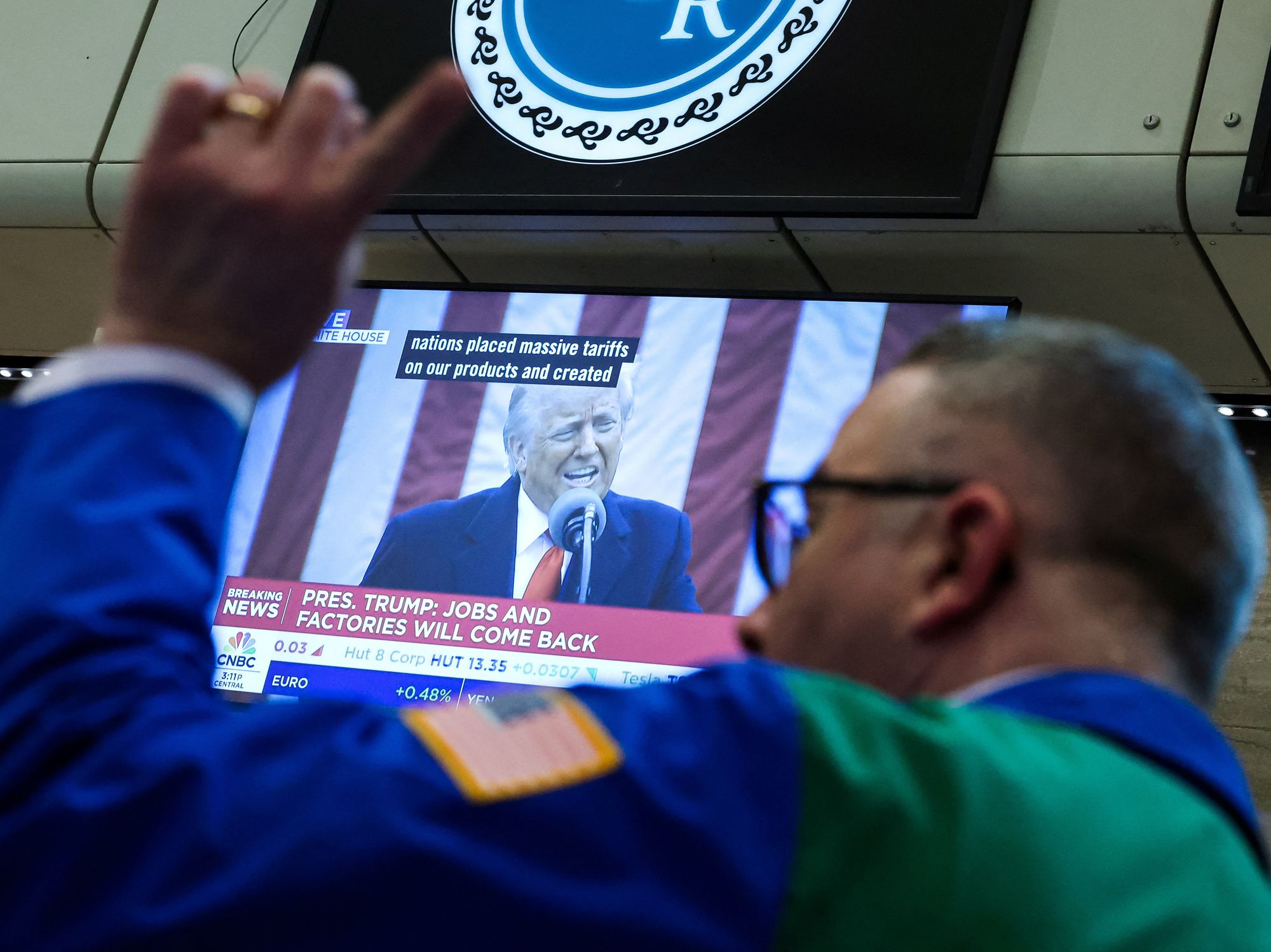Israel was struck by a missile attack from Iran as conflict in the Middle East intensifies
Reuters/ GB News
GB News' Home and Security editor Mark White gave his analysis on the conflict in the Middle East
Don't Miss
Most Read
Trending on GB News
It's almost a year since I stood at the GB News live position in central Tel Aviv, listening to the regular rocket alert sirens and watching the Iron Dome air defence system spring into life.
For those three weeks of long days and regular dashes to the nearest air raid shelter, the Middle East conflict felt very real.
But thousands of miles from the death and destruction in that region, it's easy to slip into the mindset that tells us it's a faraway war, of little relevance or impact here in the UK.
Nothing could be further from the truth. From economic shockwaves, to an influx of even more asylum seekers, and tensions on our streets, what happens in the Middle East is rarely confined to that region.
 Israel's ballistic missiles could hit any target within a 3,500km radiusGB NEWS
Israel's ballistic missiles could hit any target within a 3,500km radiusGB NEWSThe ballistic missile attacks on Israel overnight will be met with a response.
Israel's political and military leaders appear to be indicating that action will be more intense this time around, than the more limited response to Iranian missile and drone attacks in April.
And that of course raises the horrifying prospect of a descent into full scale war between Israel and Iran.
With Iranian aligned groups in Lebanon, Syria, Iraq and Yemen entering the fray, it's easy to see just how very concerned Sir Keir Starmer and other Western leaders are about the protentional for a wider regional conflict.
It risks the UK and other countries being increasingly sucked into that war.
Already, Britain's armed forces have been involved, in a limited way, in helping defend Israel from the barrage of Iranian missiles.
Hundreds of UK military personnel have been moved to Cyprus, preparing for a likely exodus of British nationals and dual nationals, as they flee the fighting in Lebanon.
But that's just a microcosm of the humanitarian crisis that would follow a major Middle Eastern war.
And that exodus will inevitably impact the UK and many other Western nations.
Over the years, I've seen how conflicts in Afghanistan, Iraq and Syria have directly affected the numbers and the make-up of the nationalities massing along France's northern coastline, waiting for people smugglers to take them across the English Channel to the UK.
More immediately, there's the risk to our military forces in assisting any evacuation from Lebanon.
The British government has been urging UK nationals and dual nationals to leave Lebanon while commercial travel options remain.
But that window is rapidly closing, and it seems increasingly likely Britain's armed forces will have to go into harm's way to mount emergency evacuations of the thousands of UK passport holders who haven't yet left.
Here at home, in a country already deeply concerned about the cost of living crisis, expect fuel, food and other essentials to take a significant hit.
The oil price has already surged in the wake of the Iranian missile attacks and could increase further if the conflict spreads.
That would impact, not just fuel prices, but the cost of many goods that contain petroleum products.
Add to that, the ongoing threat to commercial shipping from another Iranian-backed group in the Red Sea.
For many months, Houthi rebels have fired missiles and launched drones from their bases in Yemen, targeting shipping heading to and from the Suez Canal.
That has forced many shipping companies to avoid the most direct route into Europe, and instead divert thousands of miles around Africa.
That adds very significantly to transportation costs, which will ultimately have to be borne by Western consumers.
 The Institute for the Study of War's daily "Iran Update" detailed where Israel had been attacked - though Israeli sources have been more coy for security purposesINSTITUTE FOR THE STUDY OF WAR
The Institute for the Study of War's daily "Iran Update" detailed where Israel had been attacked - though Israeli sources have been more coy for security purposesINSTITUTE FOR THE STUDY OF WARAnd then, there's the very real impact on community tensions, anytime we see a flare up in the Middle East.
The war against the Iranian backed Hamas terror group in Gaza has already sparked widespread protests and some arrests of those seen as inciting terrorism.
Antisemitism is on the rise, and there have been a number of terrorist murders, in France, Germany and the UK, which have been directly linked to the conflict in Gaza.
As Iran was firing ballistic missiles into Israel on Tuesday evening, six people were killed in a terrorist gun attack near Tel Aviv, and Israeli embassy buildings in Copenhagen and Stockholm were attacked.
Police and security services right across Europe are on high alert, watching the deteriorating situation in the Middle East with increasing alarm.
They know that geography means little in this conflict. The tentacles of the Iranian regime and its related terror groups stretch far beyond their own borders.







